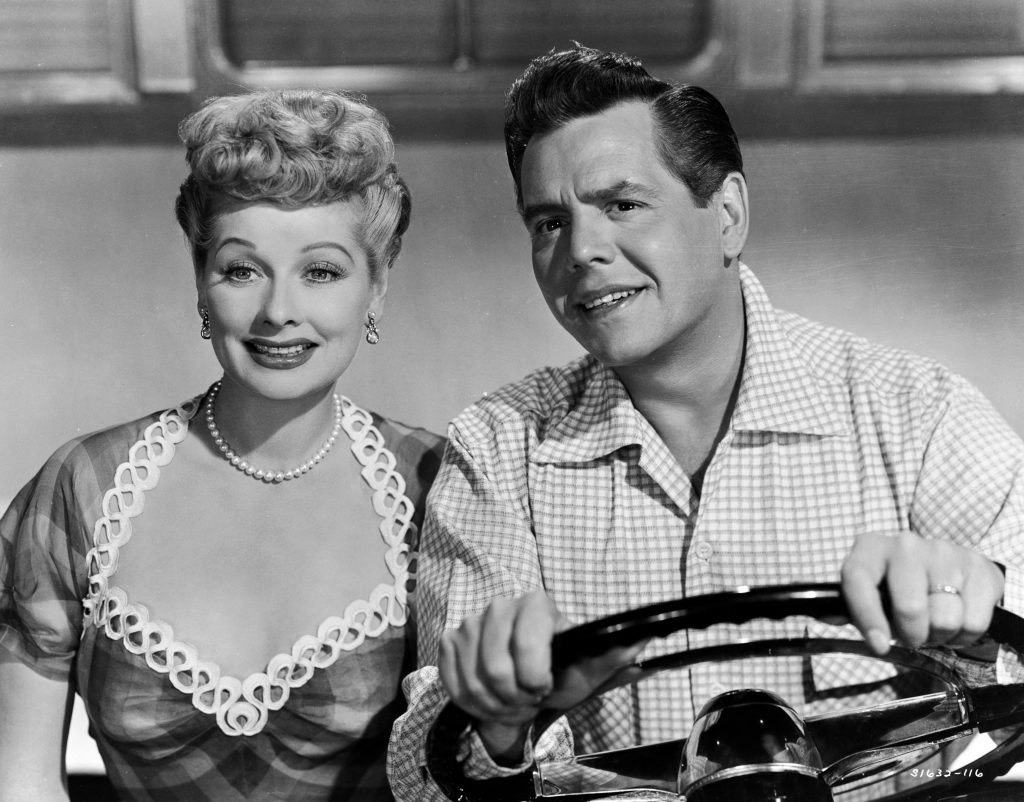Classic Couple Interview–Ben Mankiewicz on The Plot Thickens, Season 3: Lucy

On October 12 Turner Classic Movies (TCM) releases The Plot Thickens, Season 3: Lucy, the third installment of its award-winning podcast. For Season 3 of The Plot Thickens, TCM offers insight into the life and times of iconic Hollywood legend Lucille Ball. Featuring hours of newly-uncovered audio from Lucille Ball, listeners will hear her story in her own words, with revelations at every turn. Hosted by Ben Mankiewicz, the podcast features Lucy’s family, friends and closest colleagues talking about the triumphs and tragedies of the most famous funny woman in Hollywood history.
Classic Couple recently spoke with TCM and The Plot Thickens host Ben Mankiewicz about this much-anticipated podcast project.
Classic Couple: It’s almost a universal truth that we all love Lucy. What impact do you think the podcast will have on Lucy fans?
Ben Mankiewicz: Well, I’m fairly certain that Lucy fans are going to love it. I believe that even the most diehard Lucy fan is going to learn something that they didn’t know—I’m certain of it. We all learned a bunch of things that we didn’t know. And even if Lucy fans know most of it, this is a different way of telling a story. The podcast is episodic radio about Lucy, about Desi, about their partnership—and about her life before Desi and her life after Desi.

Classic Couple: How did making this podcast make you love Lucy more?
Ben Mankiewicz: My favorite compliment to give doesn’t always sound like a compliment. So, I really want people to understand how much I mean it as a compliment. But I love meeting competent people. Right? When I encounter competence, it’s like a turn on to me. And I don’t mean it in a weird way. I just mean that is so cool that this person is good at what they do. That’s really what got me about Lucy, and partly because I hadn’t thought of her in that way.
First, getting to where she did, she didn’t just catch a lucky break. Jackie Robinson famously said that luck is the residue of design. And that is so Lucy, right? She was able to seize her luck because she planned for it. And she knew what to do with it.
Lucy and Desi had an ability to manage their career in an effective way—and not by exploiting the market and it wasn’t branding. It was just getting smart people around them and recognizing what needed to happen. I imagine Lucy saying, ‘Well, no, I obviously have to look a little frumpy. If I want to play a housewife it’s got be funny, right? If I’m about as beautiful as I am, the jokes won’t work as well. So, I won’t be as beautiful as I am.’
Lucy was this force of nature. And driven. And competent. And clear in her understanding of what she needed to succeed.
Ben Mankiewicz
The reason that we still talk about Lucy today in a sense is because of Desi’s brilliance. If that show had been done the way the network wanted it to be done, first of all, Desi wouldn’t have been in it. The boldness of insisting on casting a Cuban American immigrant as the married love interest of a white woman on television in 1951 and everybody knows their sleeping together. That would have been an issue on television in 1961, in 1971, and in 1981. Maybe it would have happened in 1981 and maybe in 1991. But there would have been network people even in 1991 who would think shouldn’t the husband just be a white guy. Right? Would that be better? You know, that would be more powerful, right? And this was 1951, and she fought for that.

Obviously, that tells you she must have been pretty powerful at the time. They really wanted that show. I’m still stunned that she won that and impressed that she won. She made sure that the show was run by good, competent, smart people—this small core of people producing 39 episodes a year was staggering, staggering.
She was sometimes hard to work with, but I never get that people called her a diva if people used that word back then. It strikes me that it was her insistence on quality. Both Lucy and Desi were unbelievably competent.
If Desi didn’t insist on shooting that show on film, then none of this happens. Then we can’t watch the shows as the reruns wouldn’t look good enough. That’s why we don’t watch other shows from the early 1950s—because there’s no version of it. That’s good for Lucy and that’s Desi. That is Desi understanding it, getting it, figuring it out and saying we’re going to do it this way. It’s going to cost this much and here’s how we’ll do it. Desi is a smart, thoughtful, visionary and Lucy understood that that he was and she learned from him. He did it. And they did it.
And then he was out of picture and she became this bold, independent woman, an executive in Hollywood at a time where that just did not happen. It’s amazing.
